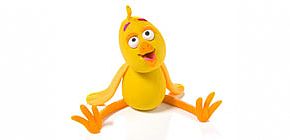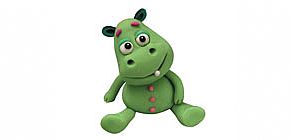Protecting Your Infant’s Skin
A Tiny Drop (Tip Tipa) of Information on Protecting Your
Infant’s Skin
Preventing itchy infant skin
An infant’s skin - this much we all know, is perfect: smooth, clean, clear, and blemish-free. Everyone strives for skin like this. But did you know that the infant’s skin is also extremely vulnerable and requires constand protection? As parents, we must know how to cope with situations like itchy skin, rashes, red splotches, etc., in order to keep our infants’ skin as perfect as it was created.
There are a few ways to do this.
Getting to know you skin a little better
Before taking a deep dive into the world of infant skin protection, it’s a good idea to get to know our own skin a little better, so we can understand its role and characteristics. Here are some interesting facts about skin - ours and our infants’:
-
Your skin is the largest organ in your body. It spans roughly 2 meters around your body and weighs up to 20 kg.
-
6 square centimeters of skin contain 1,300 nerve cells, three meter-long blood vessels and roughly 3 million cells - and more.
-
The skin continuously replaces and regenerates itself. We shed skin particles all the time.
-
By age 70, every person sheds roughly 40 kg of skin.
-
All of the skin’s cells regenerate within just 27 days.
-
During the average person’s lifecycle, they are expected to shed their skin 1,000 times.
-
The sun is the skin’s worst enemy - and the main cause of its aging.
-
That being said, exposure to the sun is important - it enabled vitamin D to be created and stored in our bodies. 15 minutes of exposure to strong sunlight each day is what our bodies need to create the desired amount of vitamin C.
-
Fingerprints only start to appear on the skin from the age of three months.
-
Infant skin is 5 times thinner than adult skin.
Types of skin itchiness and other common skin ailments
Infants’ skin is considered extremely sensitive and vulnerable - and will naturally become less sensitive and stronger as they grow and develop. As such, the risk of your infant developing phenomena and illnesses in the period immediately following birth is higher than any other period of life. Here are some of the most common phenomena that can afflict your infant’s skin during this stage of life:
-
Itchy skin - takes place mainly in response to expose to various substances. Sometimes, it can follow after, or as the result of skin redness, though it can also appear without any associated rash or redness at all.
-
Rashes - Rashes are common during the period following birth, mainly in sensitive areas such as the infant’s bottom, umbilical stump, circumcision site (in boys) and others.
-
Redness - Young skin is easily irritated and can turn red for a myriad of reasons, from coming into contact with wet wipes, to exposure to chemicals or airborne pollutants.
-
Peeling skin - Many infants suffer from peeling skin and dandruff (cradle cap), mainly during the first days after birth, when the skin is particularly prone to dryness.
Note that nearly any external stimuli or change to your infant’s environment can influence the health and condition of their skin. Bathing too often, the use of synthetic fabrics, harsh laundry detergents, environmental pollutants, weather changes and insect bites can all harm the infant’s skin and cause any of the above skin responses.
Types of itchy skin and common infant skin diseases
While we have already detailed the phenomena that can afflict your infant’s skin, it is important to understand that they often appear in response to an illness.
These are the skin diseases most commonly experienced by infants:
Atopic dermatitis (asthma of the skin) - Rough, red splotches on the skin that generally appear in body folds, as well as along the extremities. These splotches are extremely itchy, but are not contagious.
Neonatal pustulosis - A skin disease that tends to appear post-birth and passes on its own. Characterized by a rash and boils, but is not itchy.
Miliaria - Also known as “heat rash,” this skin disease is caused by the blockage of your infant’s sweat glands, which leads to the formation of clear boils, which often become infected and red.
Diaper rash - One of the most common phenomena among infants, especially in their first weeks of life. Appears in the area covered by the diaper in response to the skin’s sensitivity to the moisture of their excretions. Causes redness, skin irritation and discomfort.
Dandruff - Another common phenomenon, this one is characterized by an itchy scalp that is not usually the result of any irritation, and passes on its own. That being said, dandruff can develop in response to an external irritant or allergy.
Cradle cap (Seborrheic dermatitis) - Common until the age of six months, though it does appear in adults as well. Cause by the overproduction of skin cells and appears mainly on the head and ears, as well as in body folds/
Psoriasis - Another “grown up” skin disease that can appear at a young age as well. Leds to itchy skin, dandruff and redness. In many cases, appropriate external treatment can help relieve symptoms, but if the illness does not pass over the course of several days, medical assistance is required. Skin diseases like seborrhea and psoriasis require medical intervention.
How to protect your infant’s skin
-
Try not to expose your infant to extreme temperatures - high heat or low cold can harm their skin
-
Change diapers often (every three hours)
-
Buy clothes made from natural materials, not synthetics
-
Use bath wash, shampoo and laundry detergent designed for infants
-
Use natural oils - citronella or geranium oil, as they contain healing properties, keep mosquitoes and other critters away and sterilize the air
-
Massage your infant’s skin and remain in close contact.
CTS is expanding its line of products for infants and toddlers and is launching its Taftafim Baby Buzz line - designed to protect and calm the skin. A line of products that contain green ingredients, such as citronella oil, to protect little ones’ skin - at home and outdoors. The Taftafim Baby Buzz line is the only line of product in Israel designed for use from 3 months of age!
These products all contain a unique blend of natural oils and are intended for sensitive skin applications.
Contain green ingredients
No pesticides
No SLS
No parabens
The infant’s skin is very sensitive. Itchy and rashy skin is common among infants and requires special attention. Protect your infant’s skin at all time, remain aware of any changes to its state and provide the highest quality care, to ensure skin health for years to come.
Sick of the buzz? Apply Baby Buzz!
Other articles on this subject:
Do you have little ones at home? Challenging, sleepless nights, hours being held and a dream of one day being able to sit alone yet again. It’s unlikely that the first thing you’re thinking of as a weekend outing is a hike in nature or camping trip. But, when you do it, you’ll discover that the crash of water and the chirping of birds, vast expanses and blue skies serve as the perfect background for a family outing with little ones.
|
The change in seasons and transient weather form the ideal breeding ground for mosquitoes. Mosquito bites can cause itchy skin and even transmit diseases. How can we protect our children from them and treat them properly?
|
The geranium plant is known for its pleasant fragrance and beautiful flowers it. But besides being one of Israel’s most popular ornamental plants, it is also known for its many medicinal properties. Read on to learn more.
|
Citronella oil is known to be effective in repelling mosquitoes. Its pleasant, lemony scent naturally wards off mosquitoes and it is recommended for use for people of all ages, especially children and infants. Want to know more about it?
|


.jpg)
.jpg)
.jpg)
.jpg)



.jpg)
.jpg)
.jpg)
.jpg)

.jpg)
.jpg)
.jpg)
.png)
.jpg)
.jpg)
Contact us